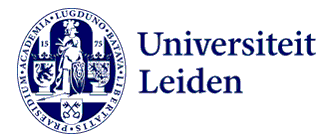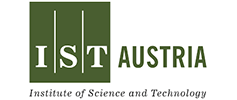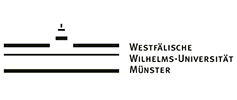Harmonization of Regulation Based on Pancasila Values Through the Constitutional Court of Indonesia
Abstract
Keywords
Full Text:
PDFReferences
Assihiddiqie, Jimly. Pengantar Ilmu Tata Negara [Introduction to Constitutiona Law]. Jakarta: Secretary General and Secretariat of The Constitutional Court of Republic of Indonesia, 2006.
--------------. Ideologi, Pancasila dan Konstitusi [Ideology, Pancasila, and Constitution]. Jakarta: Constitutional Court of the Republic of Indonesia, 2009.
Atmasasmita, Romli. Teori Hukum Integratif [Integrative Law Theory]. Yogyakarta: Genta Publishing, 2012.
Bakry. Pancasila: Yuridis Kenegaraan [Pancasila: Judicial State]. Yogyakarta: Liberty, 1997.
Constitutional Court of Republic of Indonesia. "MK Tegaskan Kedudukan Pancasila dalam UUD 1945 [The Constitutional Court Affirmed the Position of Pancasila in The Constitution]." Accesed August 1, 2017. http://www.mahkamahkonstitusi.go.id/index.php?page=web.Berita&id= 13296&menu=2#.WU n8P5KGPIU.
Dayanto. "Rekonstruksi Paradigma Pembangunan Negara Hukum Indonesia Berbasis Pancasila [Reconstruction of the Development of Law Paradigm of Indonesia based on Pancasila]". Jurnal Dinamika Hukum 13, no. 3 (2017): 498-509. https://doi.org/10.20884/1.jdh.2013.13.3.253.
Faiz, Pan Mohamad. "Legal Problems of Dualism of Judicial Review System in Indonesia". Jurnal Dinamika Hukum. 16, no. 1 (2016): 87-195. https://doi.org/10.20884/ 1.jdh.2016.16.2.535.
Harjono, Dhaniswara K. "Konsep Pembangunan Hukum dan Perannya Terhadap Sistem Ekonomi Pasar [The Concept of Development of Law and Its Role toward the Market Economy System]." Jurnal Hukum Ius Quia Iustum 18, no. 4 (2011): 564-584 10.20885/iustum.vol18.iss4.art5.
Iskandar, Pranoto. "The Pancasila Delusion." Journal of Contemporary Asia 45, no. 3 (2016). 723-735, https://doi.org/10.1080/00472336.2016.1195430.
Kaelan. Pancasila Yuridis Kenegaraan.Yogyakarta: Liberty, 1993.
--------------. Inkonsistensi Dan Inkoherensi Dalam Undang-Undang Dasar Negara Republik Indonesia Tahun 1945 Hasil Amandemen [Inconsistency and Incoherence in the 1945 Constitution of the Republic of Indoensia from the Amendment]. Jakarta: Badan Pengkajian Majelis Permusyawaratan Rakyat Republik Indonesia, 2017.
Krisnayuda, Backy. Pancasila & Undang Undang (Relasi dan Transformasi Keduanya Dalam Sistem Ketatanegaraan Indonesia) [Pancasila & Constitutions (Relation and Transformation in Indonesia Constitutional System)]. Jakarta: Prenadamedia Group, 2016.
Law, David S. "A Theory of Judicial Power and Judicial Review." Georgetown Law Journal 97 (2009): 723.
Latif, Yudi. Negara Paripurna Pancasila [A State of Pancasila]. Jakarta: Gramedia, 2011.
Lussier, Danielle N and M. Steven Fish. "Indonesia: The Benefits of Civil Engagement." Journal of Democracy 23, no.1 (2012): 70-84, https://doi.org/10.1353/jod.2012.0017.
Notonagoro. "Pancasila Sebagai Ideologi dalam Berbagai Bidang Kehidupan Bermasyarakat, Berbangsa, dan Bernegara [Pancasila as Ideology in Various Fields in Society]." Dies Natalis Speech at Airlangga University on November10th 1995 in, Jakarta: BP-7 Pusat, 1991.
Romadoni, Ahmad. "Pidato Lengkap Jokowi di Upacara Hari Lahir Pancasila [A Complete Speech of Jokowi in the Commemoration of the Anniversary of Pancasila]." Liputan 6, Juni 1, 2017. http://news.liputan6.com/read/2973374/pidato-lengkap-jokowi-di-upacara-hari-lahir-Pancasila.
Sidharta, Bernard Arief. Refleksi tentang Struktur Ilmu Hukum :Sebuah Penelitian tentang Fundasi Kefilsafatan dan Sifat Keilmuan Ilmu Hukum sebagai Landasan Pengembangan Ilmu Hukum Nasional [Reflection of The Structure of Law: A Research on Philosophical Foundation and The Nature of Law as the Basic for Development of National Law]. Bandung: Mandar Maju, 1999.
Siahaan, Maruarar. Undang-undang Dasar 1945 Konstitusi yang Hidup [A Living 1945 Constitution]. Jakarta: Secretary General and Secretariat of the Constitutional Court of the Republic of Indonesia, 2008.
Siswimihardjo, Koento Wibisono. Pancasila Suatu Telaah Ideologik Dalam Perspektif 25 Tahun Mendatang [Pancasila, An Ideological Analysis for the Next 25 Years Perspective]. Yogyakarta: Pusat Studi Pancasila Universitas Gadjah Mada, 1999.
Soekarno. Filsafat Pancasila Menurut Bung Karno [The Philosophy of Pancasila based on Bung Karno]. Yogyakarta: Media Presindo, 2006.
Soetrisno, Try. "Penyikapan terhadap Pancasila dan Efektifitasnya sebagai Landasan, Orientasi, dan Rambu-rambu bagi Kehidupan Berbangsa dan Bernegara di Masa Lalu, kini, dan Masa Mendatang", [Addressing Pancasila and Its Effectiveness as Platforms Orientations, and Signs for Nations in the Past, Present, and Future], delivered at symposium and Sarasehan Hari Lahir Pancasila, which took place at Gadjah Mada University on 14th and 15th August 2006 : 20-21.
Sweet, Alec Stone. "The Politics of Constitutional Review in France and Europe." International Journal of Constitutional Law 5, no. 1 (2007): 69-92.
Treanor, William Michael. "Judicial Review Before Marbury", Stanford Law Review 58, no. 2 (2005): 455-562.
Uzman J., T. Barkhuysen and M.L. van Emmerik. "The Dutch Supreme Court: A Reluctant Positive Legislator?" Electronic Journal of Comparative Law 14, no.3 (2010): 1-35
Wantu, Fence M. "Mewujudkan Kepastian Hukum, Keadilan, dan Kemanfaatan Dalam Putusan Hakim di Peradilan Perdata Perdata [Realising Legal Certainty, Justice and Beneifts of Justice's Decosopm in Civil Courts]." Jurnal Dinamika Hukum 12, no. 3 (2012): 479-489, https://doi.org/10.20884/1.jdh.2012.12.3.121
Winataputra, Udin Saripudin. "Implementasi Kebijakan Nasional Pembangunan Karakter Bangsa Melalui Pendidikan Karakter (Konsep, Kebijakan, dan Kerangka Programatik) [The Implementation of National Policy on the Development of the Character of the Nation through Character Education (Concept, Policy, and Pragmatic Framework)]." Paper., 2013.
Yudhista, Dhea. "Arah Pembangunan Hukum Nasional Menurut UUD NRI 1945 [The Development of National Law based on the 1945 Constitution]." February 29, 2016. https://fh.umj.ac.id/arahpembangunan-hukum-nasionalmenurut-undang-undang-dasar-negara-republik-indonesia-tahun-1945/.
DOI: https://doi.org/10.31078/consrev426
Article Metrics
Abstract view : 827 timesPDF view : 169 times
Refbacks
- There are currently no refbacks.
Copyright (c) 2019 Constitutional Review

























































